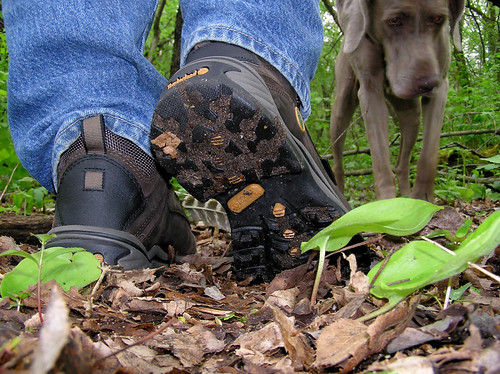
For years now, the U.S. Forest Service has been encouraging visitors to our nation’s forests and grasslands, to not only enjoy all there is out there, but to play safe and play clean.
One example of this outreach effort is the PlayCleanGo: Stop Invasive Species In Your Tracks campaign.
PlayCleanGo has 130 partners, all fostering active participation in actions designed to interrupt recreational pathways of spread for invasive species. By becoming a partner, you can spread the message to stop invasive species in your tracks.
“PlayCleanGo is designed to give outdoor recreationists a clear call to action to be informed and attentive in helping stop the spread of invasive plants and insects and improving overall forest health,” said Monica Lear, U.S. Forest Service Forest Health Protection Director. “These pests can expand like a different kind of wildfire, from forest to forest by unsuspecting visitors just looking for some fun and adventure.”
From camping to fishing to hiking, getting outside and into nature is one of the many activities that our forests support. Outdoor recreation provides physical challenges, contributes greatly to the physical and mental health of individuals, provides economic benefits to communities, and has become an essential part of American culture. PlayCleanGo is helping these recreationists preserve the land they already love and enjoy.
Through positive messaging, the program provides simple steps people can take to avoid accidently spreading invasive species.
This advice includes letting visitors know to stay on designated trails, remove mud and seeds from shoes and gear, and burn only local or certified firewood. For example, garlic mustard, an aggressive plant invader of wooded areas throughout the Northeastern and Midwestern US, can form dense stands and displace native species by competing for available light, nutrients and water resources. Garlic mustard seeds stick together when damp and adhere readily to small soil clusters, making it easy for them to stick to muddy boots, pant cuffs, and animal fur. Through easy actions like inspecting hiking equipment, clothing, and pets before going out on a hiking trail and conducting the same inspection upon leaving the trail, the PlayCleanGo campaign is helping slow the spread of invasive species.
PlayCleanGo was launched by the Minnesota Department of Natural Resources, in partnership with the University of Minnesota Extension, Minnesota departments of Agriculture and Transportation, and Explore Minnesota.
Creating a new and successful awareness campaign, like Smokey Bear and his fire prevention message, depends on broad, frequent exposure to the public. For this reason, PlayCleanGo invites public and private organizations to join the effort by becoming a partner.
